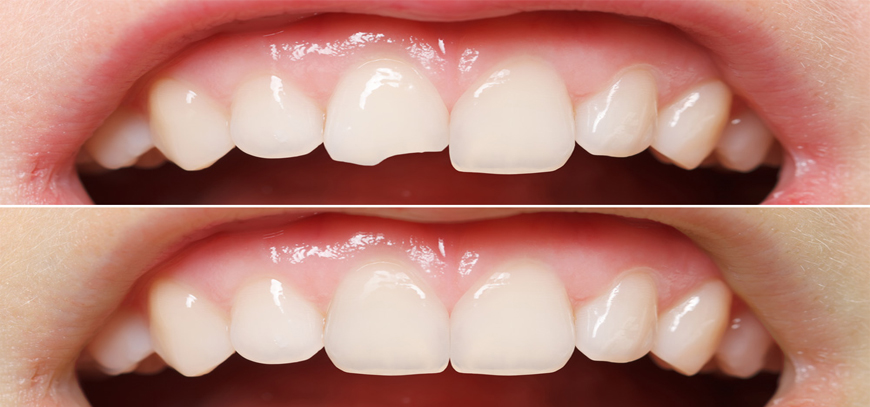Clinic Time:
- Morning: 10 A.M - 2 P.M
Evening: 4:00 P.M - 9 P.M
Contact Info
-
Phone: +91-6261474753
- Send an email
Broken Tooth Repairing

Dealing with a broken tooth is more common in life than people think. Even though human teeth are extremely strong, the teeth could break, crack, or fracture in certain situations. This damage can cause severe pain and make your teeth more vulnerable to infections.
Whether it's you or your child with a chipped tooth, it may not be possible to get in to see your dentist right away. There are, however, a few home remedies that can reduce the discomfort and swelling. Those include:
- Trying over-the-counter pain medication
- Rinsing with a mouthwash to remove anything in the jagged ends of the tooth
- Indirectly applying an ice pack if the pain persists
If the chipped tooth occurred due to a severely traumatic incident with extreme pain and bleeding, visit your local emergency room immediately.
Which teeth are most likely to fracture?
Fractures occur most often on the upper front teeth and the teeth toward the back of your lower jaw (mandibular molars). Though people commonly fracture one tooth, more severe injury or trauma may fracture multiple teeth. People with dental cavities have a higher risk of fracture, even with less severe trauma.
What are the symptoms of cracked tooth syndrome?
Cracked teeth don’t always cause symptoms. When they do, the main symptoms include:
- Pain that comes and goes, particularly when chewing.
- Sensitivity to temperature changes or eating sweet foods.
- Swelling around the tooth.
- Toothache when biting or chewing.
Accidents and many other causes can break a tooth. If it’s visible, it can affect your appearance and feel embarrassing. You might notice pain, sensitivity, swelling, or signs of infection, but you can also crack a tooth without any symptoms. See your dentist right away if you suspect a fractured tooth. Treatments may save your tooth, restore your appearance and prevent further dental problems.

